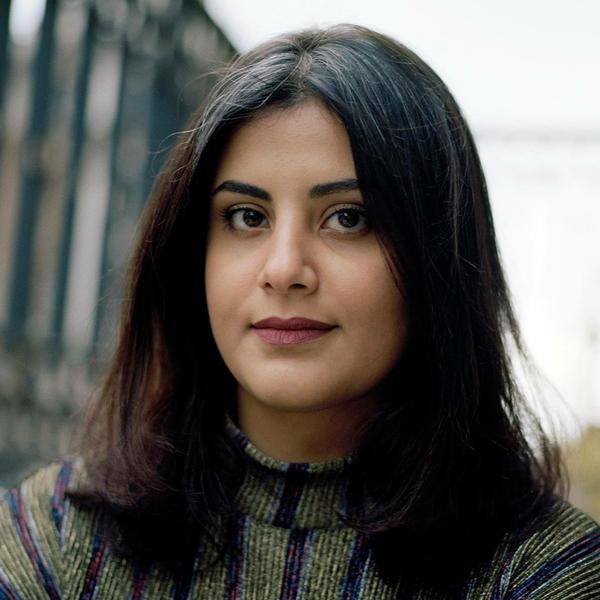Originally posted to The Guardian website, 18 March 2020
Family of women’s rights campaigner Loujain Hathloul pledge to fight on after her court hearing is cancelled
Loujain al-Hathloul first realised that speaking up could make a difference when she was five years old. Her father, a navy veteran who wanted his children to be strong swimmers, took her to the local pool where other visitors chastised him for bringing a girl in a pair of swimming trunks to the male-only area.
“He told them that if they were uncomfortable with what a five-year-old girl was wearing then that was their problem,” said Loujain’s sister, Lina. “After that, lots of fathers started taking their little girls along to swim.”
As an adult, Hathloul has been arrested and detained several times for defying Saudi Arabia’s ban on women driving and for campaigning for an end to the kingdom’s male guardianship system. In May 2018 she was arrested along with other prominent activists. They were tortured, spent months in solitary confinement and eventually charged under anti-terrorism laws with destabilising national security and dealing with foreign entities.
Almost two years since her kidnap and arrest and after multiple delays in the trial, Hathloul’s family are again urging the kingdom to free her and end the crackdown on critics of the crown prince, Mohammed bin Salman.
A hearing scheduled for 10 March was cancelled without explanation and rescheduled for Wednesday following demands from Hathloul’s parents, who are acting as her legal representatives. That hearing has now also been cancelled, and all court dates in the country will probably be postponed due to the coronavirus pandemic.
“Loujain is very strong and knows that she isn’t forgotten about, even though the whole legal and prison system is designed to wear her down,” said Lina, who lives in Brussels.
“The government is trying to sell a narrative of reform and show that the kingdom is … becoming more liberal. The best way to do that would be to admit that the activists who are being detained are not criminals and to let them go.”
When Prince Mohammed ousted his uncle to become the appointed heir to his father King Salman’s throne in 2017, he promised social and economic reform in the conservative absolute monarchy.
While some changes have been made – women can now drive, the religious police have been reined in, and women can now travel without the permission of a male guardian – the reforms have been accompanied by a crackdown on dissent and any perceived threats to the crown prince’s power.
Loujain campaigned for the right for women to drive and was imprisoned just before the law was changed. The message, Lina said, was to show that change in Saudi Arabia only comes from the top down.
“There is currently an atmosphere of fear in Saudi Arabia,” she said. “We used to live under a harsh system but we knew what the red lines were. Now, we don’t know what will cause trouble and what won’t. They invite western musicians to come and give concerts, but Saudi women who attend get arrested for dancing.”
Loujain’s time in prison, marked by torture and ill-treatment, is a stark warning. When her parents were allowed to visit her in December 2018, she showed them black scars on her thighs from electric shocks. She says she has also been whipped, beaten, waterboarded and sexually assaulted by interrogators who tried to take off her clothes and watched her while she slept.
In desperation, the family went public with Loujain’s ordeal. The Saudi government denies Hathloul was arrested unlawfully or that any form of torture has taken place.
“I’m not allowed to talk to Loujain directly for both of our safety, but from what I understand the physical torture has stopped but she is still suffering mentally,” Lina said. “After so long in solitary confinement, even the slightest noise really disturbs her now.”
One of the Hathloul family’s other major concerns is that the charges against Loujain don’t make sense: being in contact with foreign journalists and applying for a job at the UN are among the offences listed by the public prosecution.
The kingdom’s stated reasons for arresting Hathloul have changed over the last two years. In October 2018, Prince Mohammed said the detained women’s rights activists were spies working to destabilise the kingdom, and that the security services had recordings to prove it. A year later, the crown prince said in an interview with US media that the Saudi judiciary was independent and he had nothing to do with the activists’ cases.
Faced with a legal system that was recently found by Amnesty International to rely heavily on confessions obtained under torture, the family had to keep speaking out about Loujain’s case, Lina said.
“My sister refused to give up on making life better for women in Saudi Arabia,” she said. “We won’t stop either until Loujain is free.”
Link to the original post : https://www.theguardian.com/world/2020/mar/18/we-wont-stop-until-shes-free-says-sister-of-jailed-saudi-activist-loujain-hathloul


